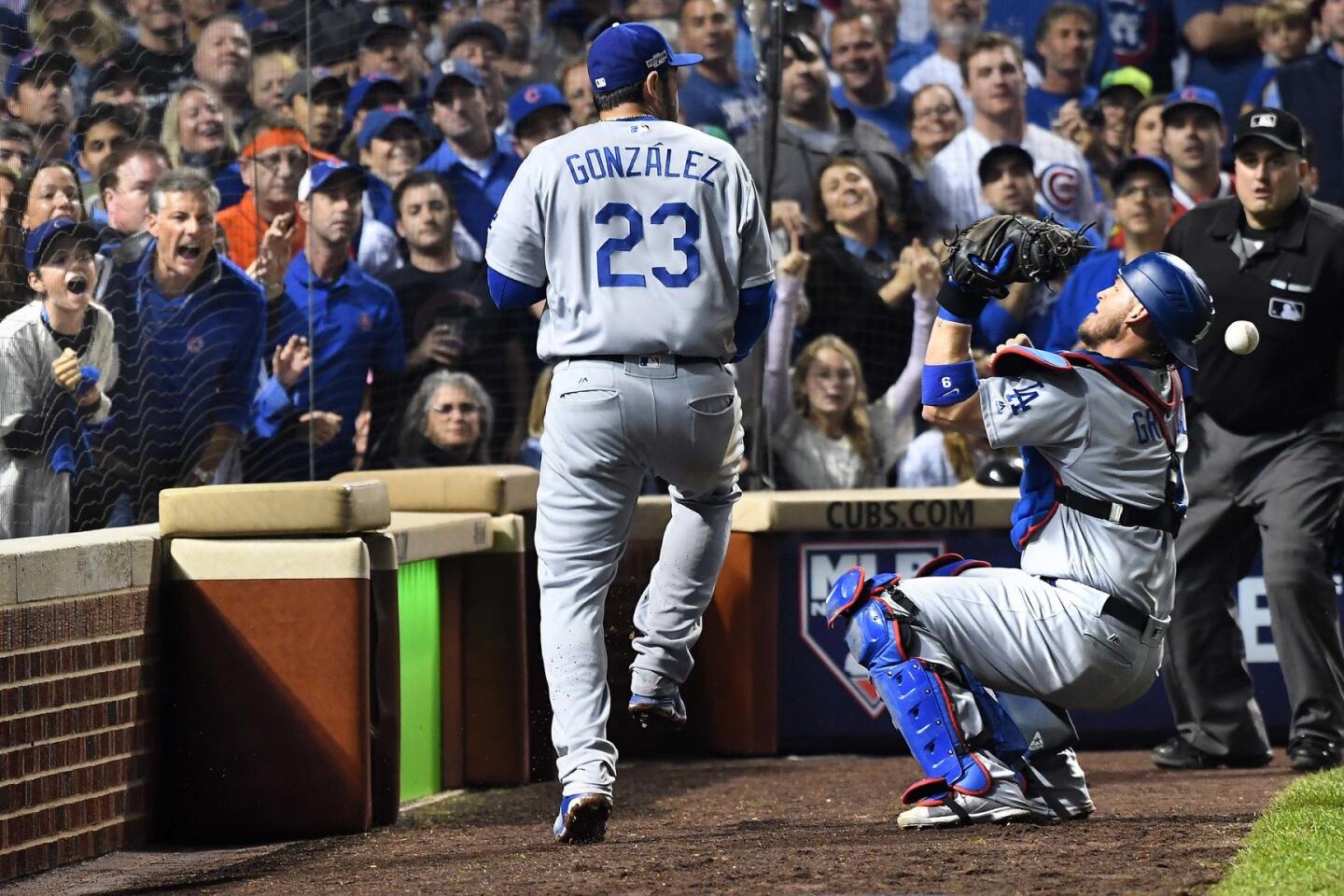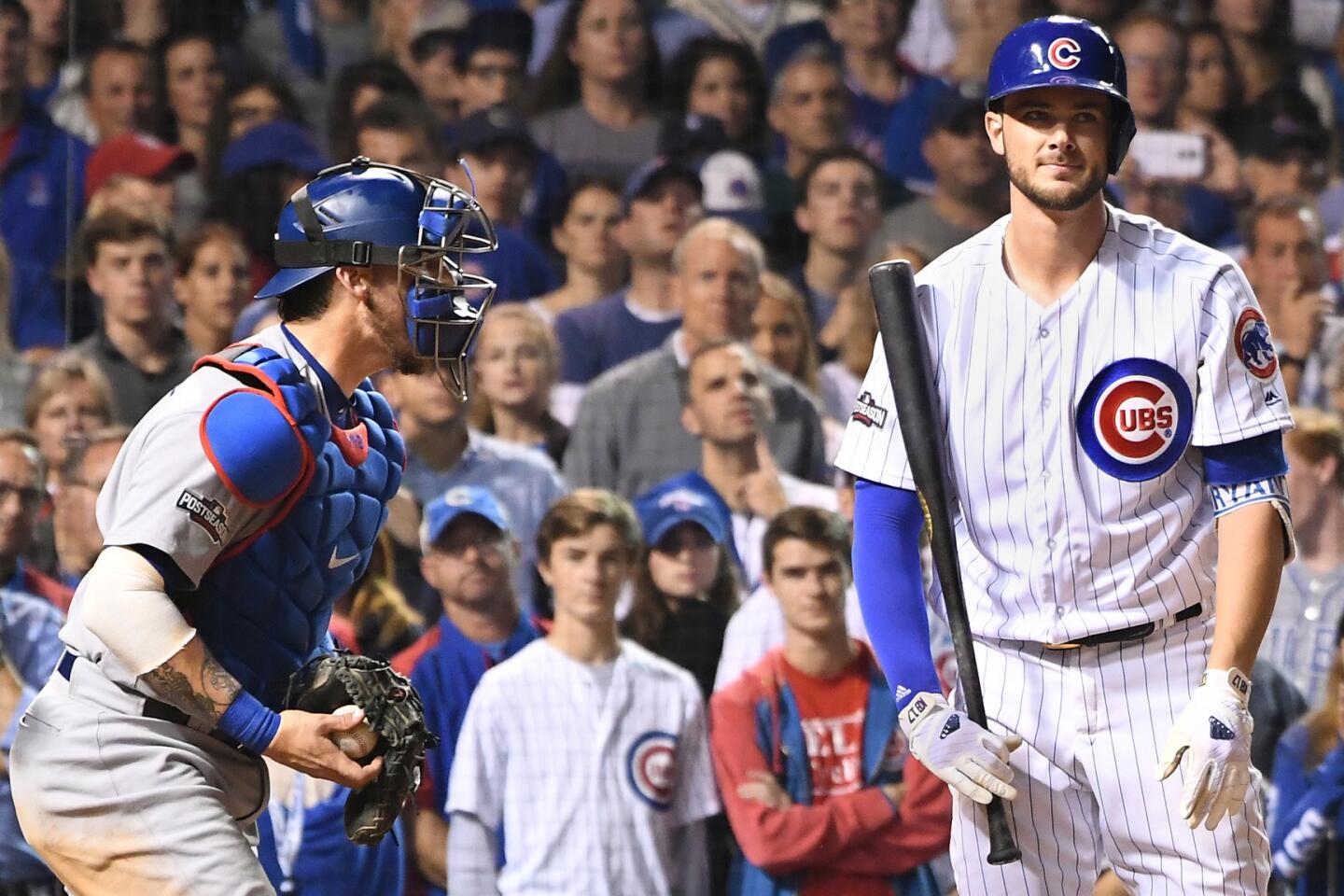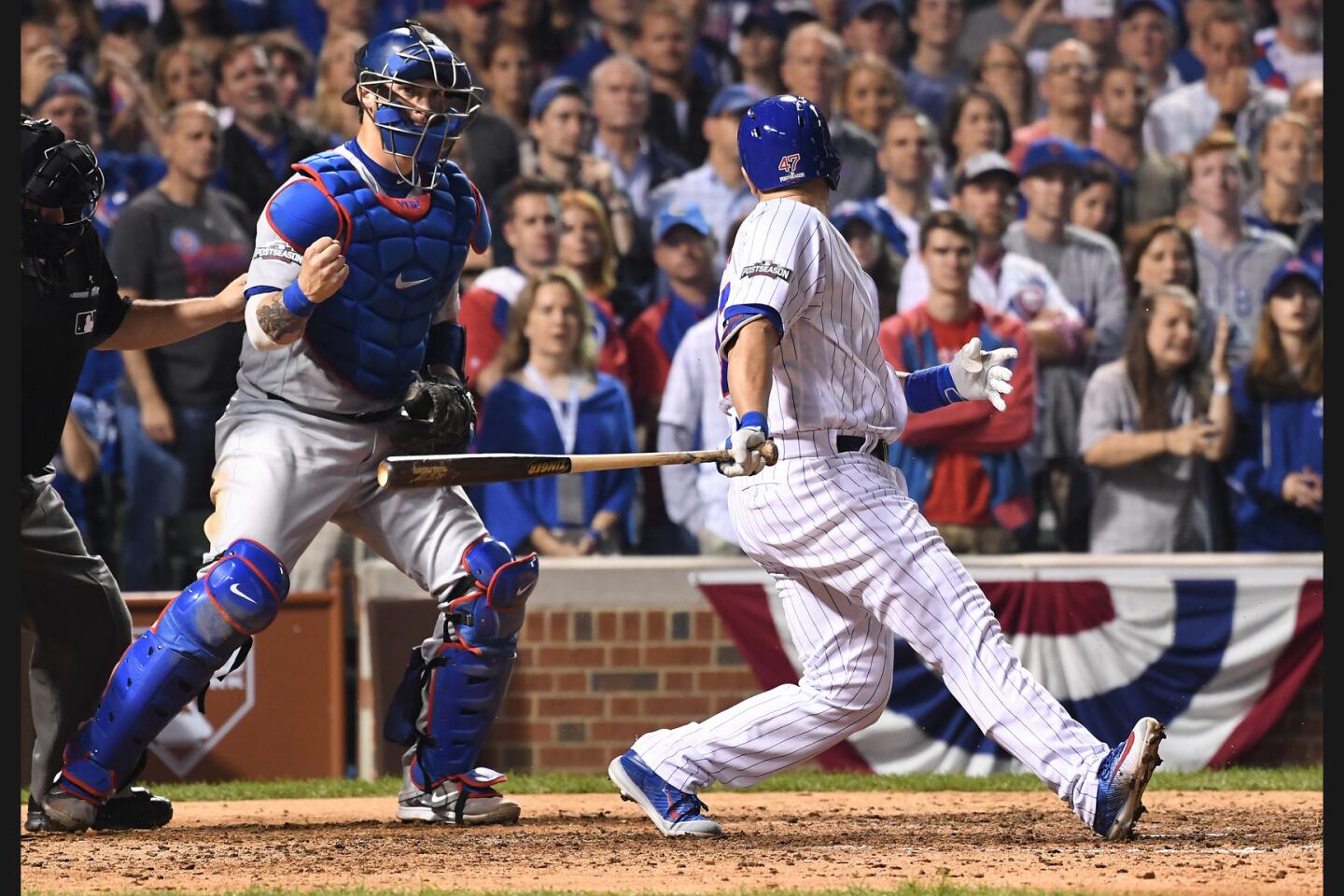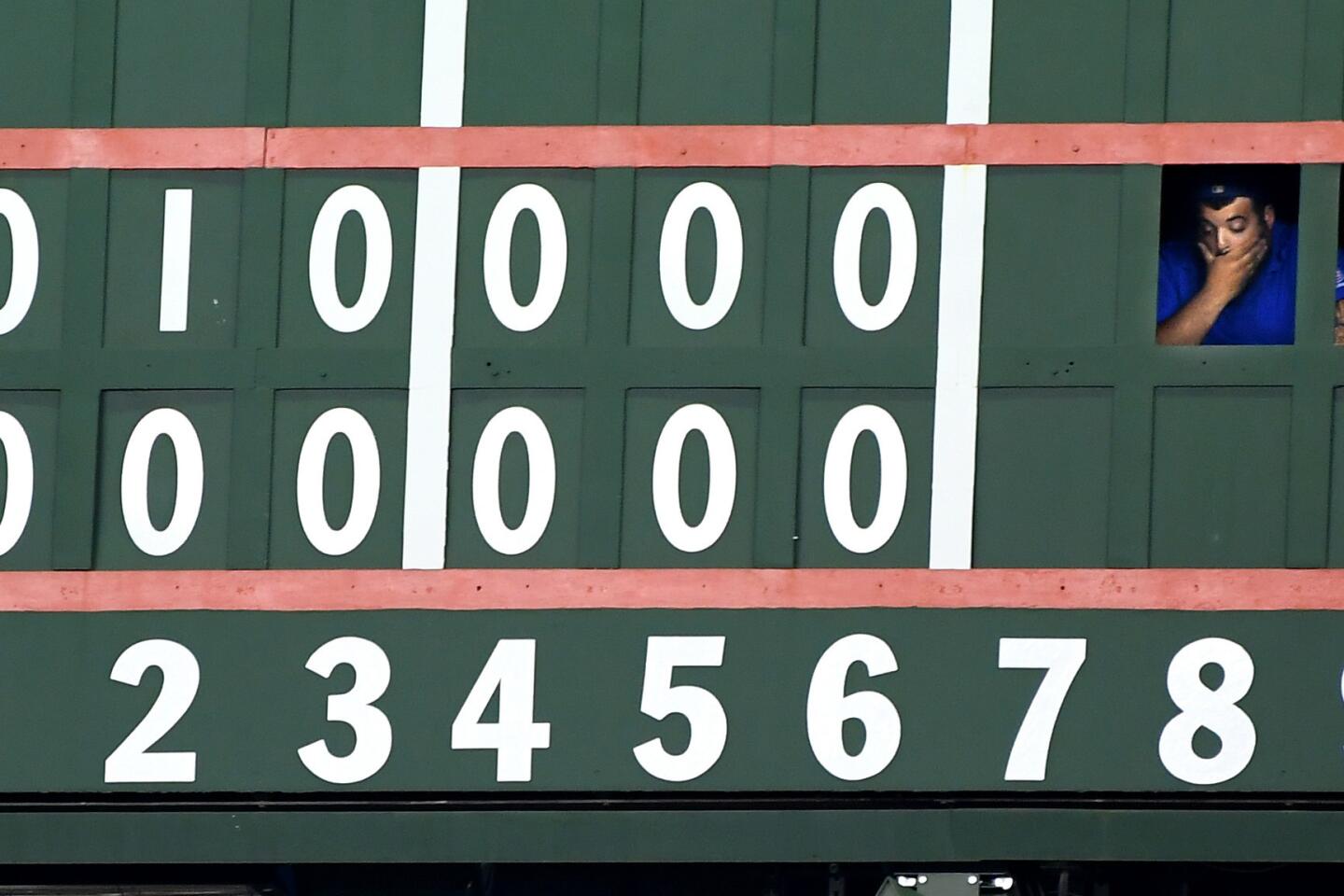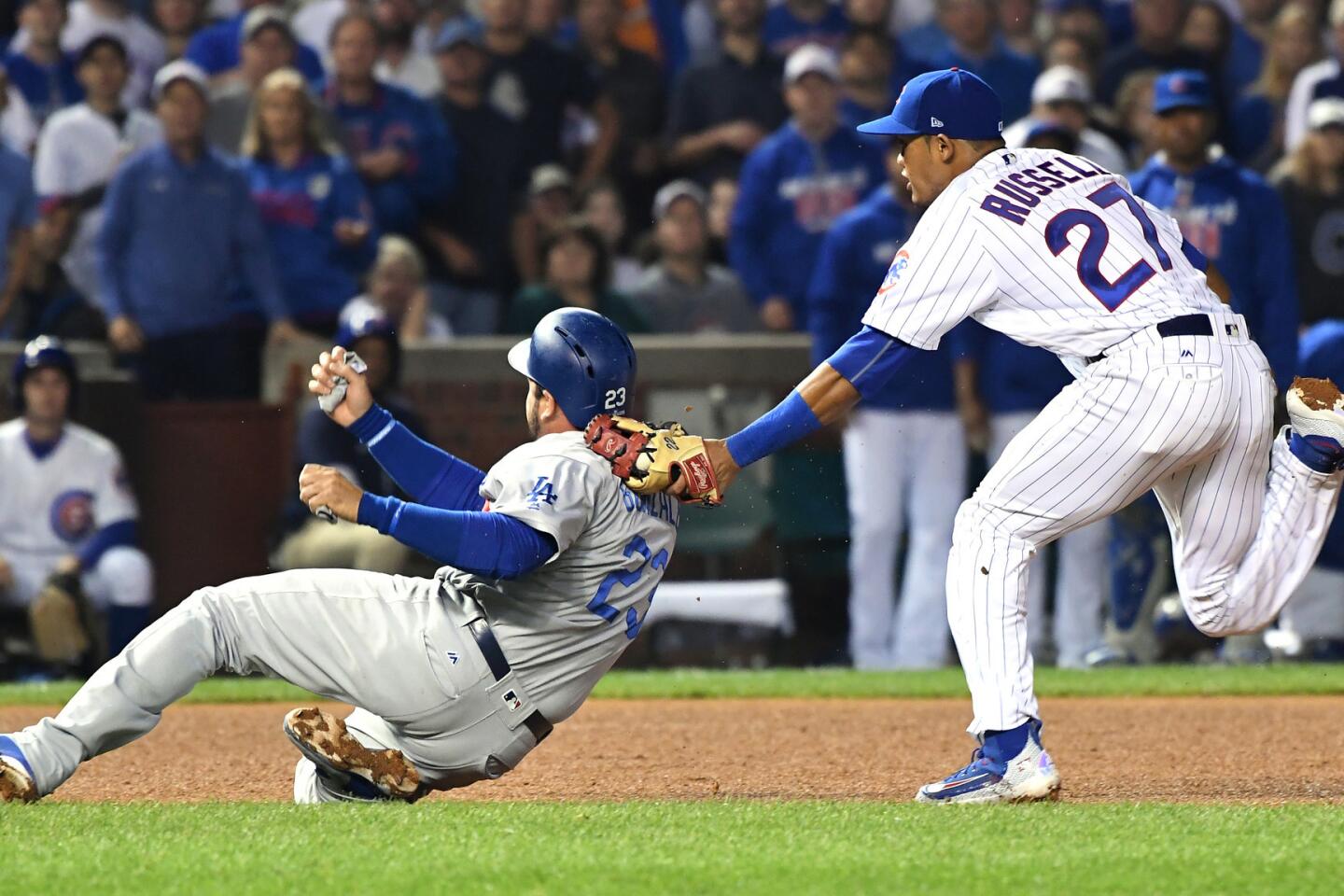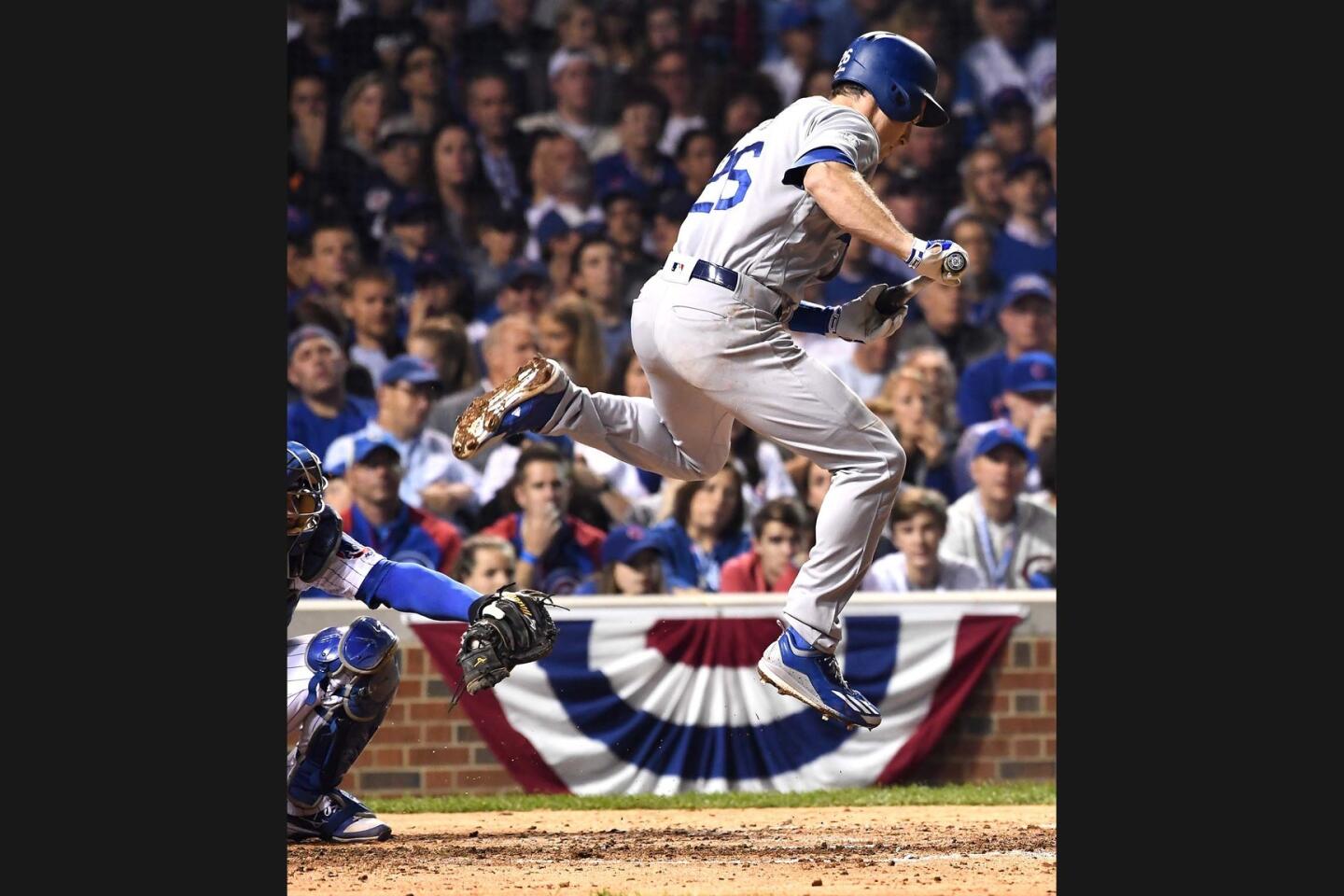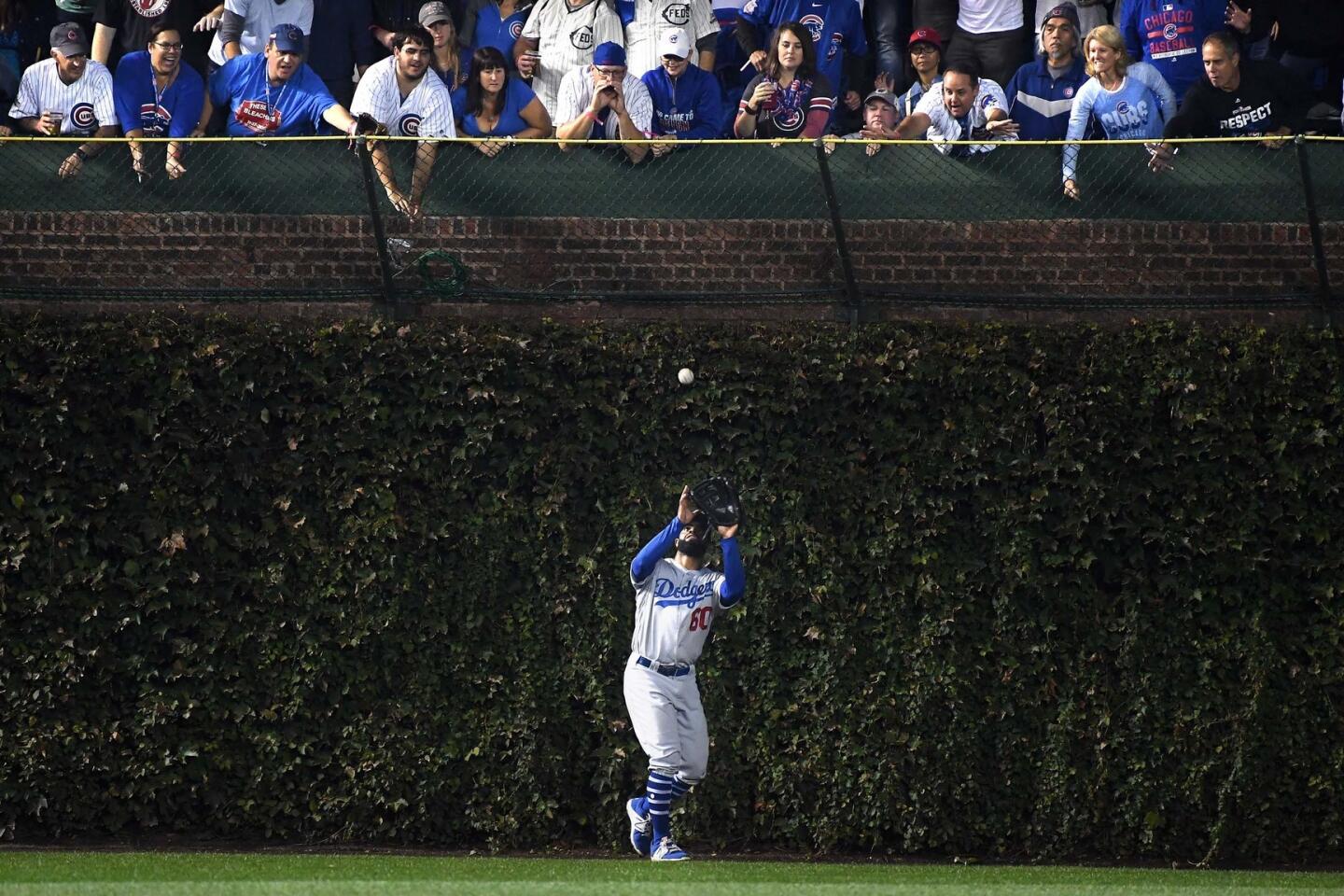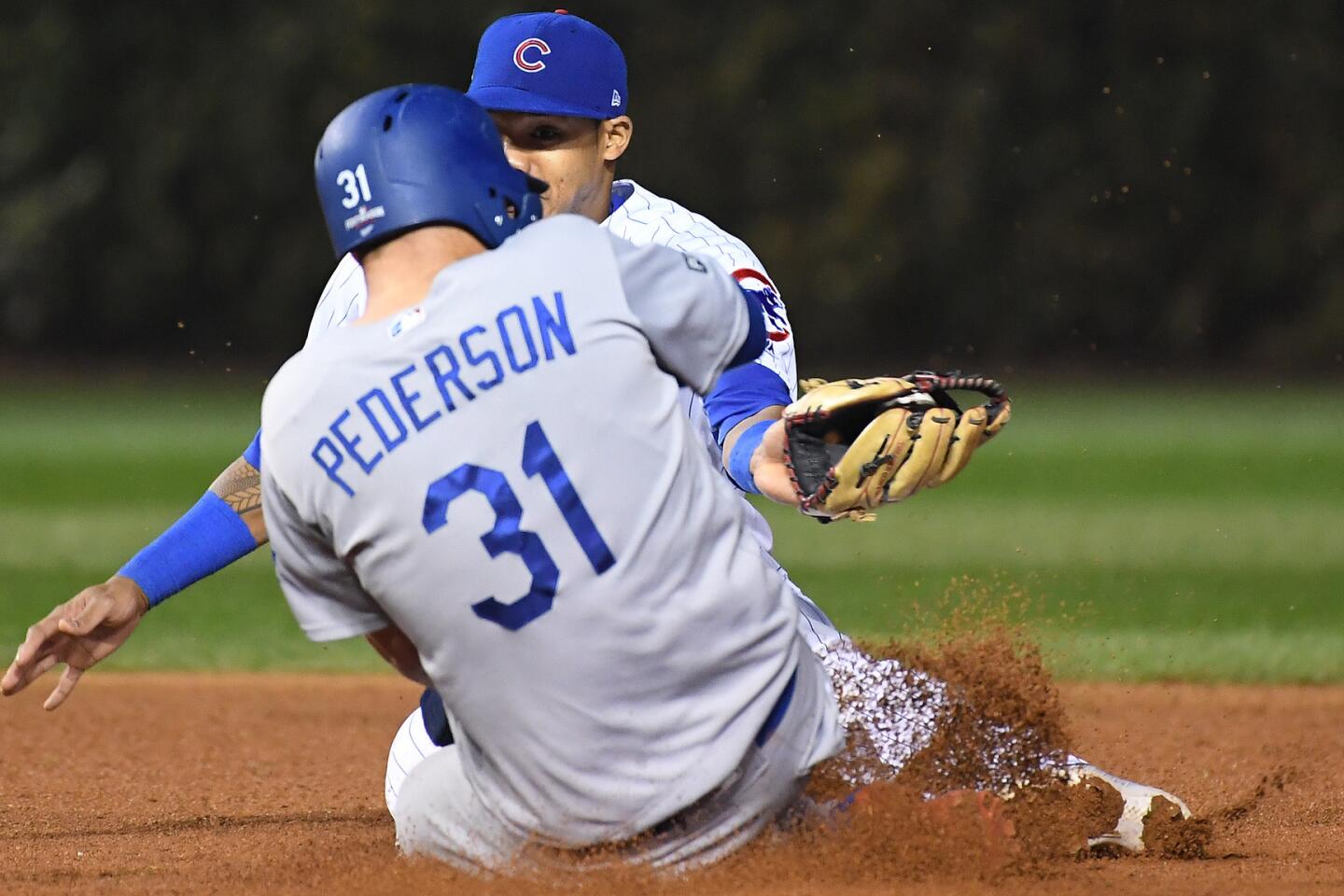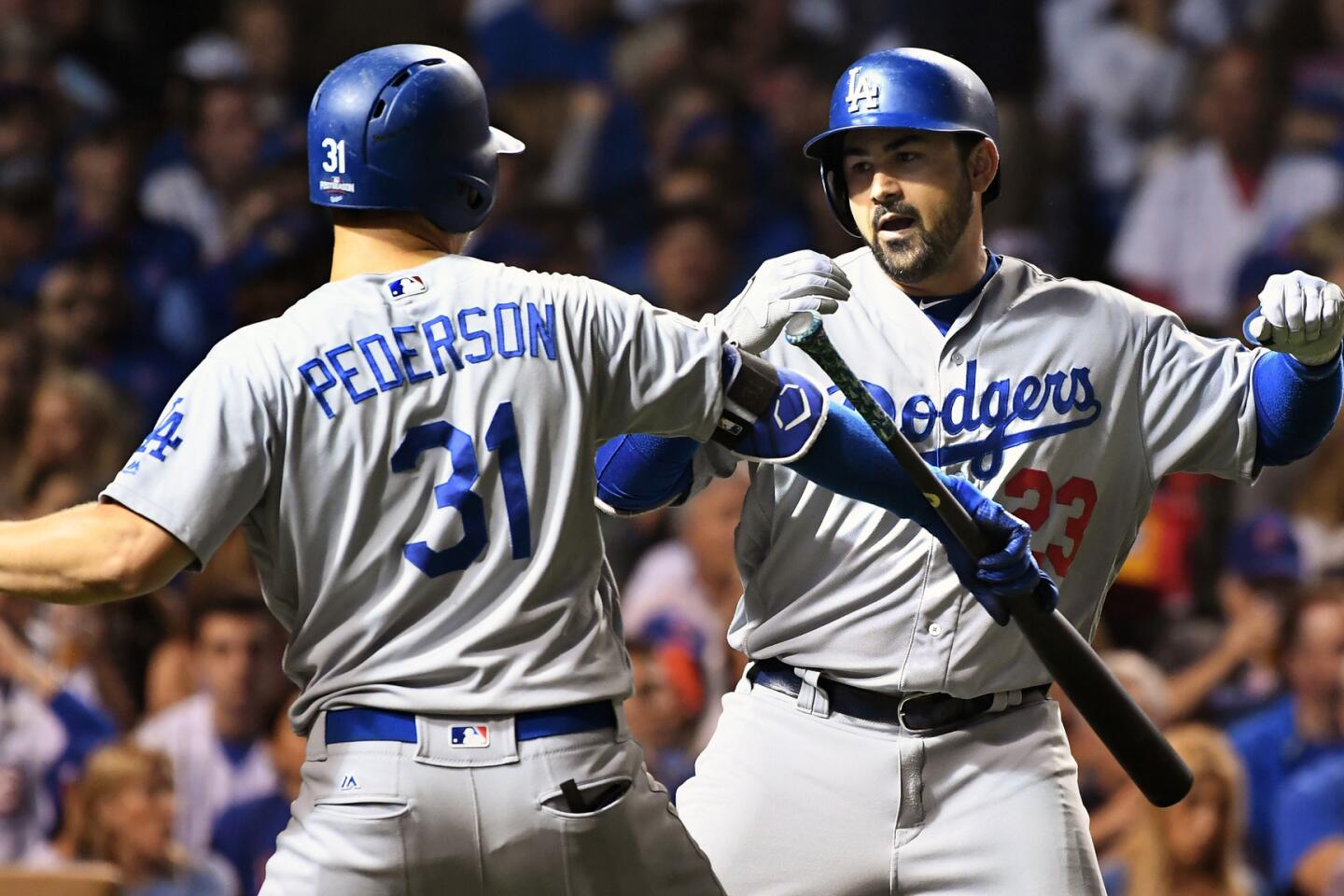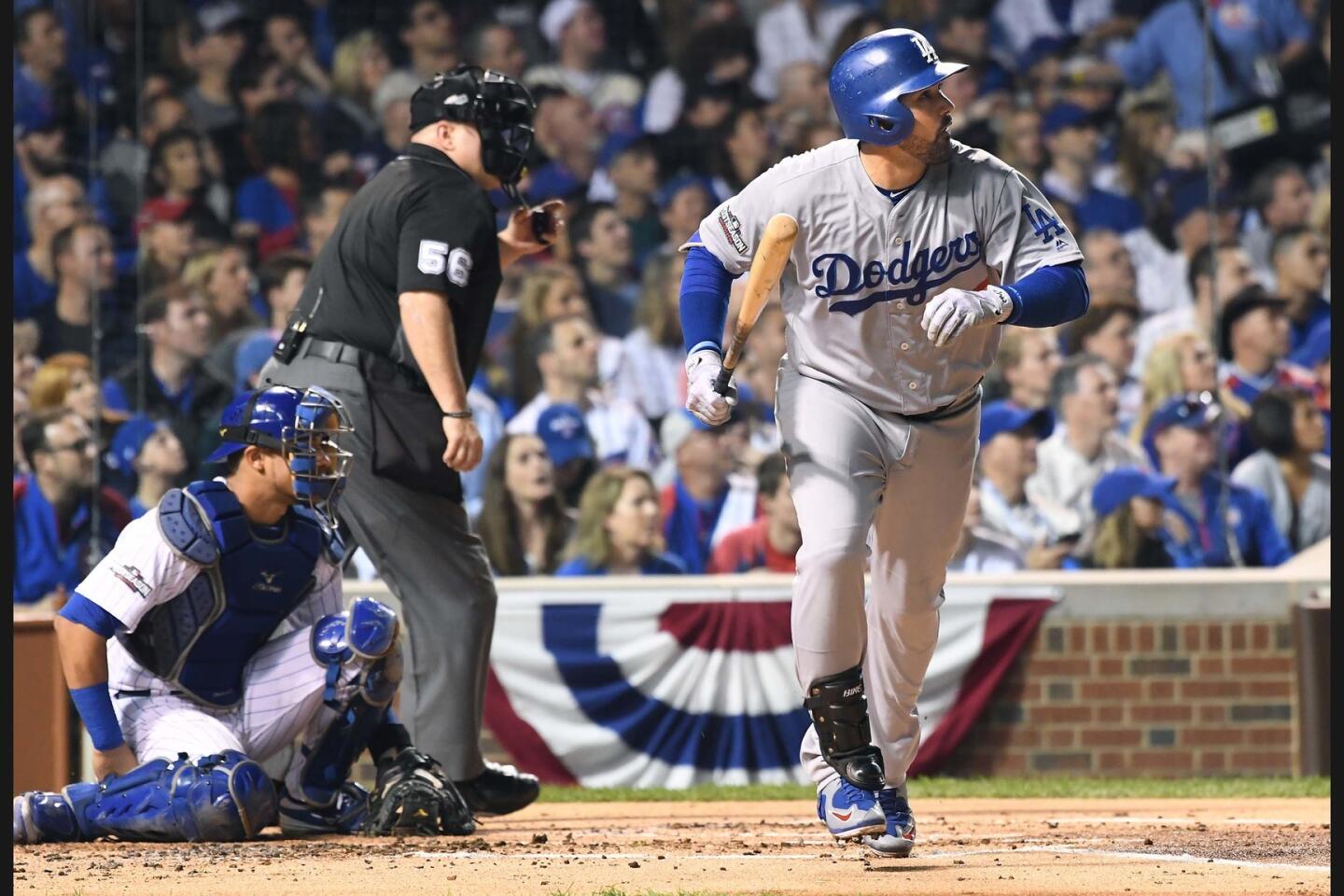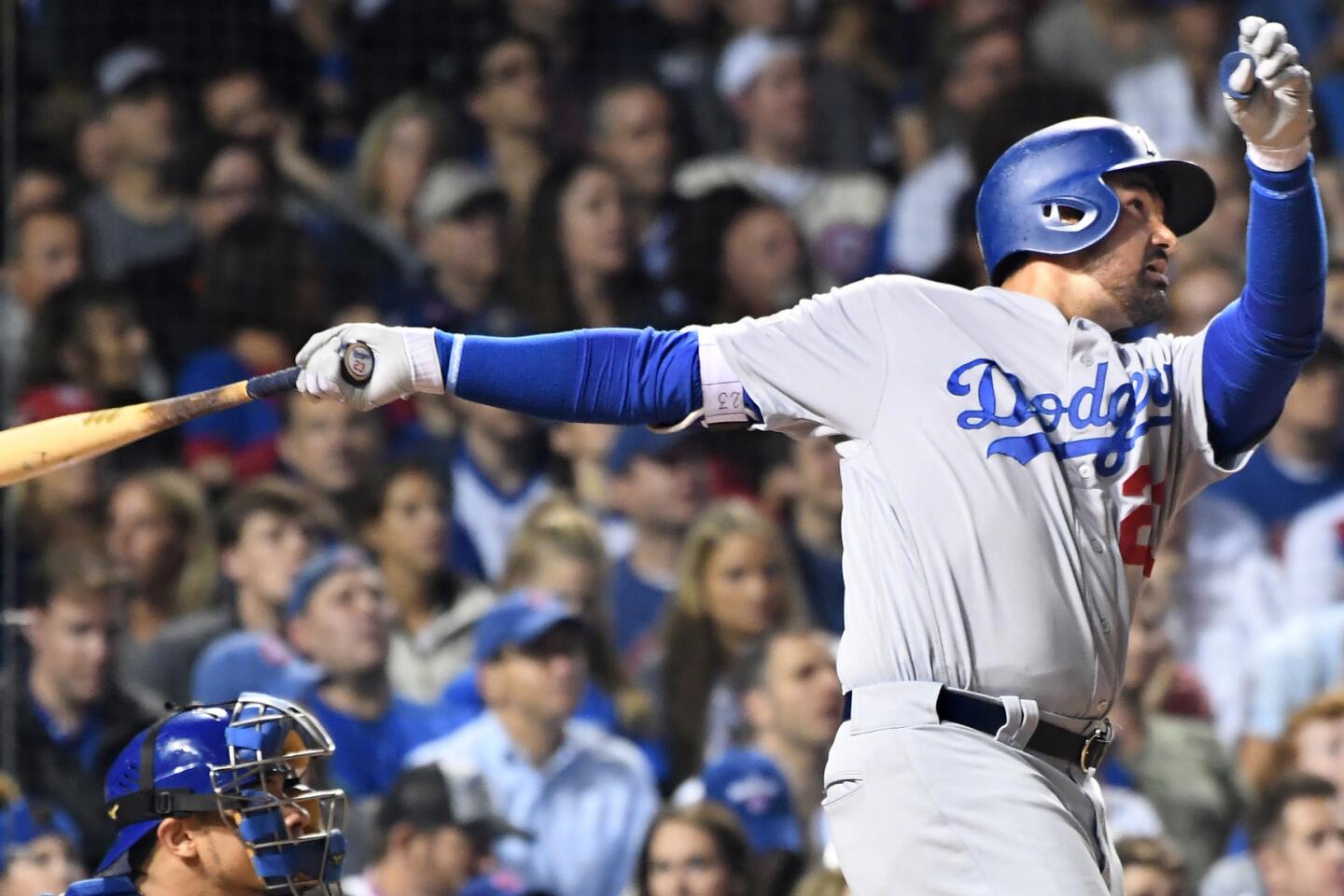Yasmani Grandal responds to his doubters
- Share via
Reporting from Chicago — Between Clayton Kershaw’s two starts in the National League division series, catcher Yasmani Grandal trudged out to the mound nearly a dozen times. It appeared the two were having trouble communicating.
Not so, Grandal maintained. They were merely taking every possible precaution to prevent Washington’s baserunners at second from stealing their signs. The two men again formed a battery Sunday for Game 2 of the NLCS and hardly required midfield conventions at Wrigley Field. Grandal said that was because no one reached second base. Only one Chicago Cub got halfway home throughout the Dodgers’ 1-0 victory.
For additional evidence, Grandal pointed to Saturday’s eighth inning, when Ben Zobrist led off with a double against Joe Blanton and Blanton stretched the count to 3-and-0 against Addison Russell.
“All the sudden, Russell is not taking good swings at sliders, looking like he’s looking for a fastball and in a certain location,” Grandal said. “Did we know Zobrist had the signs and was doing something for it? Yeah, we did. That’s why we do it.”
When the opponent gets a man to second, it becomes Grandal’s priority to ensure he cannot relay what is coming to the hitter, perhaps particularly when Kershaw is pitching.
“We are literally paranoid when it comes to men on second and they are trying to get signs,” Grandal said. “We know who is getting the signs. We know what they’re doing. We know what they do to get it. In the playoffs, one relayed sign could mean the difference between winning the World Series and not getting there.
“That’s why we have four or five different sets of signs, and we’re constantly changing.”
Asked how he interpreted criticism of his handling of Kershaw during the last round, Grandal said he was aware of it but did not care. “We won,” he said. “That’s all I care about.”
Grandal does not much mind his offensive struggles this postseason, either. He does not have an extra-base hit in seven games, but he has reached base seven times in 24 plate appearances, including two walks Sunday. He is content to contribute in this manner.
“There’s a couple things I do,” Grandal said. “I slug, I walk, and I catch. In the playoffs, catching is No. 1, getting on base is No. 2, and slugging is No. 3. I’m hitting seventh, and there’s a reason why they have me hitting seventh. They want me to make sure I run the pitching staff like it’s supposed to be ran.
“That’s basically it: I’m gonna run my pitching staff, I’m gonna call a good game and we’re gonna pitch good games, I’m gonna walk, and I’m gonna hit homers.”
Grandal framed several borderline pitches Sunday into called strikes. Asked how he did it, he described constant conversation with the home-plate umpire, Eric Cooper. He regularly checked to make sure Cooper could see the pitches. Grandal likes to set up his target late; Cooper wanted it early. Grandal adjusted. In the eighth inning, Cooper touched Grandal on the shoulder twice when he set up high for Kenley Jansen cutters.
“I can’t really see,” Grandal said the umpire told him.
Again, he adjusted.
One year ago Sunday, the Dodgers’ season ended. Twenty-five minutes after the final pitch at Dodger Stadium, Grandal said he had arthroscopic surgery on his shoulder scheduled for five days later. He had played through pain and performed poorly, with his one hit a single. Despite the depression in his power this month, he said he is not hurt.
“Obviously the slugging wasn’t there then,” he said. “But, now, at any point at any time, one swing could change a lot of things. And it’s gonna be scary if that one swing happens. If I go on a tear, it’s gonna be a bad time for them. It takes one movement for me to figure it out. Until then, I’m gonna keep walking and keep getting my pitchers through.”
Twitter: @pedromoura
More to Read
Are you a true-blue fan?
Get our Dodgers Dugout newsletter for insights, news and much more.
You may occasionally receive promotional content from the Los Angeles Times.

